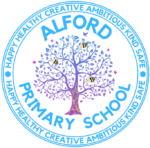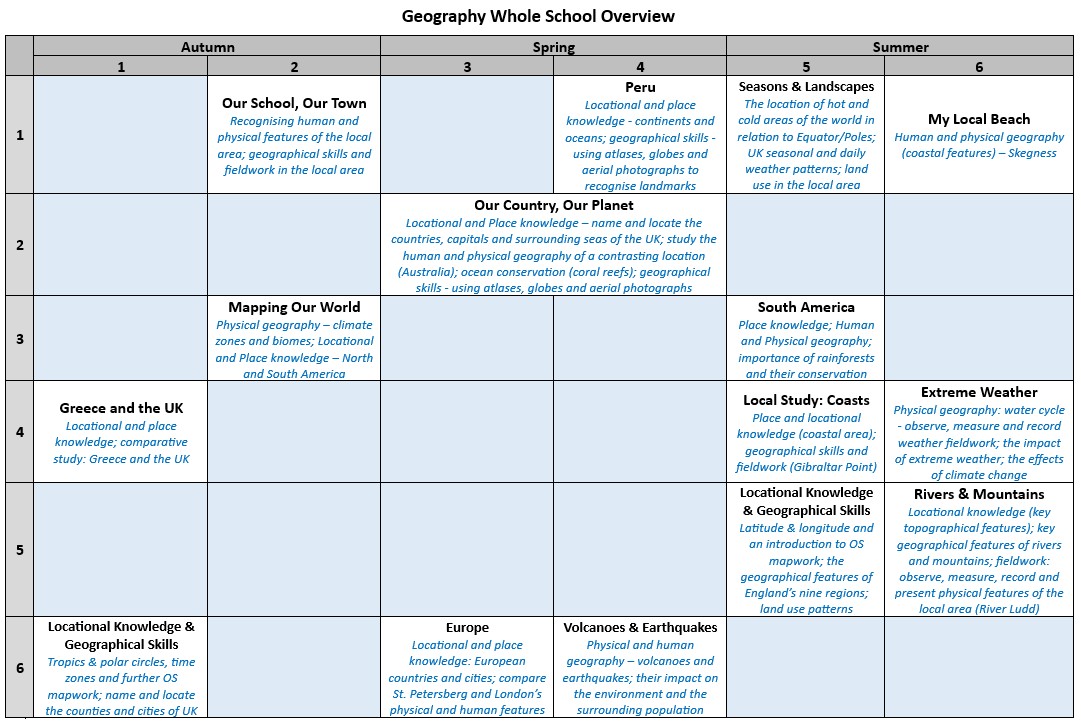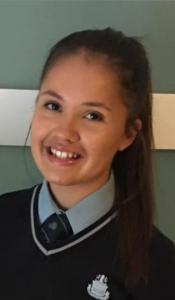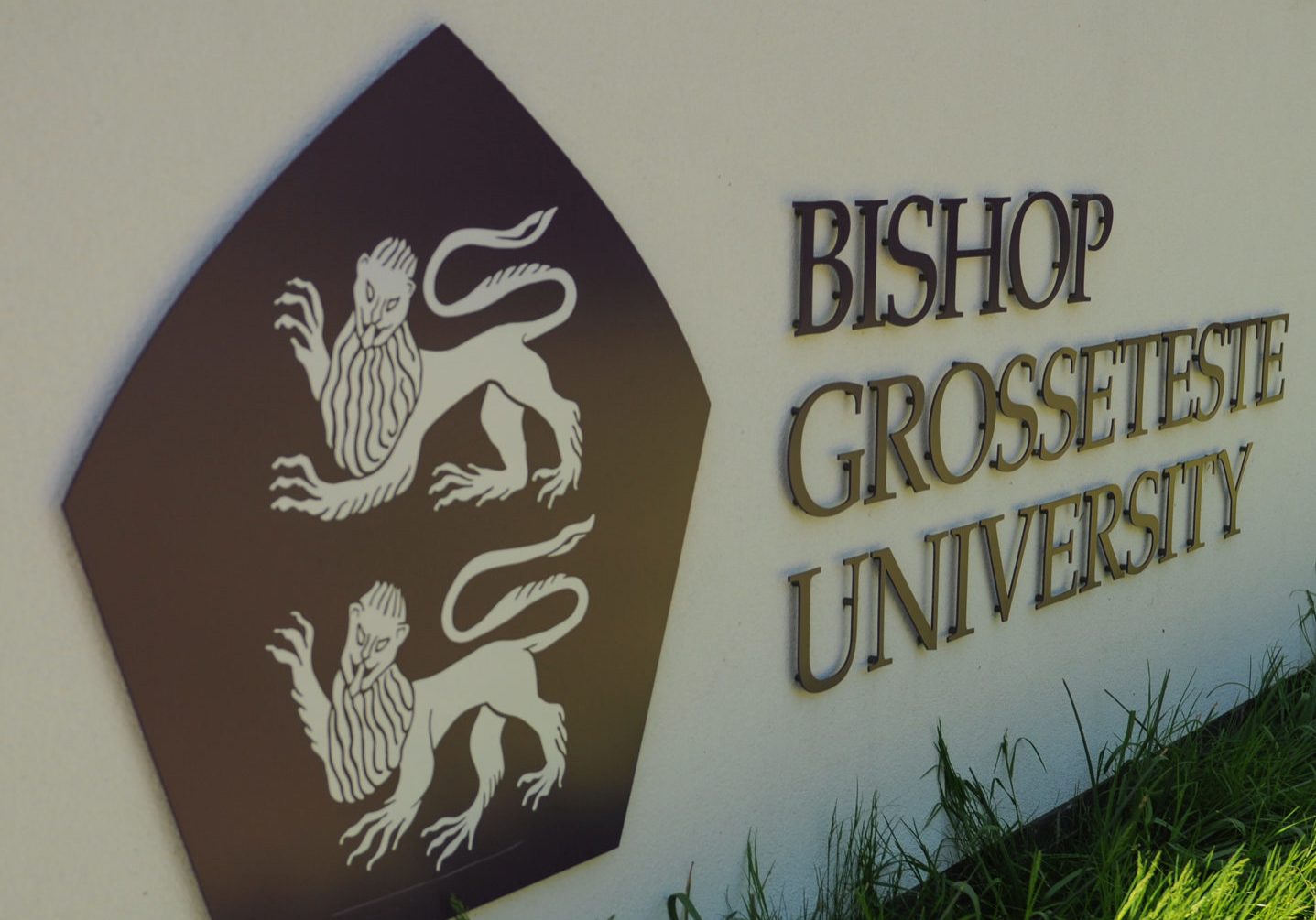
What the National Curriculum requires in Geography at KS1
Pupils should develop knowledge about the world, the United Kingdom and their locality. They should understand basic subject-specific vocabulary relating to human and physical geography and begin to use geographical skills, including first-hand observation, to enhance their locational awareness.
What the National Curriculum requires in Geography at KS2:
Pupils should extend their knowledge and understanding beyond the local area to include the United Kingdom and Europe, North and South America. This will include the location and characteristics of a range of the world’s most significant human and physical features. They should develop their use of geographical knowledge, understanding and skills to enhance their locational and place knowledge.
EYFS: The EYFS framework is structured very differently to the National Curriculum as it is organised across seven areas of learning rather than specific subject areas. Our EYFS Curriculum has been designed to meet the requirements of the educational programmes in the EYFS Statutory Framework (2021). This is outlined in our unique Curriculum Overview (see Long Term Plan). The Development Matters (2020) guidance offers a top-view of how children develop and learn. The table below sets out the Geography developmental pathways in broad ages and stages - Three and Four Year Olds (EYFS 1), Reception (EYFS 2) and Early Learning Goals. These pathways have been selected as a ‘best-fit’ match to the programme of study for Geography, and are key building blocks for children as they transfer their learning to the National Curriculum. The most relevant pathways for Geography are taken from the following areas of learning – Mathematics and Understanding the World.
Intent
At Alford Primary School, we have an ambitious Geography curriculum as we follow the National Curriculum. It is designed to inspire our children with a curiosity, fascination and appreciation of the world around them. It will equip them with a diverse knowledge and understanding of people and places around the world. The curriculum will progress from a study of the immediate locality, to the national and global; it will facilitate and inspire our children to become enquiring, resilient, independent, challenging thinkers and active global citizens, aware of how the Earth’s features are shaped, interconnected and change over time.
Pupils will have the confidence to use, and build on, their cultural capital, learning and experiences, both inside and outside of the classroom. We will create confident geographers, with deep-rooted learning and skills, that prepare them for the journey throughout and beyond primary school. This is because our curriculum builds pupils’ substantive and disciplinary knowledge progressively over time, from the moment they start school in the Early Years.
Disciplinary knowledge is used when pupils consider where geographical knowledge originates, and how they can learn the practices of geographers. Substantive knowledge sets out the content that pupils will learn:
- locational knowledge
- place knowledge
- environmental, physical and human geography
- geography skills and fieldwork
- Subject specific vocabulary
Pupils also learn about influential people who have affected local and global geography. These may be conservationists, explorers or scientists. We will challenge and encourage children to think for themselves, give reasoned answers, work independently, and be socially aware of local and global geographical issues. Consequently, we hope this will inspire pupils to consider future professions with a Geographical background, for life in modern Britain.
To reflect our enriched KEC curriculum and exciting ‘hooks’ we will deliver Geography content that creates enjoyable, engaging and memorable learning experiences, and gives children the opportunity to consider and apply their learning across the curriculum.






